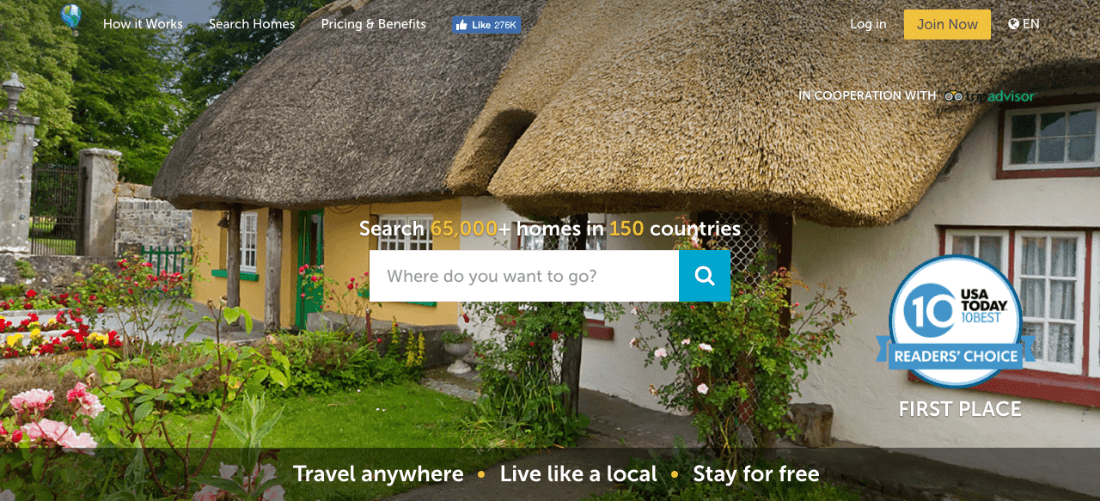
HomeExchange has facilitated more than one million home swaps since 1992. In 2016 alone, 65,000 members made 135,000 home swaps across 150 countries, and was awarded “Best Site for Booking Your Stay” in 2016 by USA Today readers. It was also the inspiration for the 2006 movie “The Holiday,” starring Cameron Diaz and Jude Law.
Alexandra Origet du Cluzeau, global PR director for HomeExchange, talked with RewardExpert about the company.
A major collaboration
Founder Ed Kushins, an avid traveler, got the idea for HomeExchange after realizing the costly accommodations and lack of cultural immersion associated with traditional hotels and resorts. In 1992 he began to compile open houses for travelers who looked to cut costs and indulge in culture, creating quarterly print catalogs of available properties that were mailed to members who were encouraged to contact one another directly. The website was created three years later, offering the portfolio to a global marketplace.
“HomeExchange.com became a pioneer in the sharing economy, bringing together a network of like-minded travel enthusiasts keen to explore the world,” Origet du Cluzeau said. “In 2005 HomeExchange started to expand internationally with the first regional site in French, Trocmaison. In the next few years, 15 regional sites were created, including one in Chinese.”
In February 2017 HomeExchange was acquired by French company GuestToGuest, creating the world’s largest and most active home exchange community with more than 400,000 users.

Combating the Airbnb ideology
The company is not shy about being an alternative to well-known companies like Airbnb. Actually, it embraces the challenge.
HomeExchange rentals are not wrought with drawbacks like taxes, bans and other issues plaguing large cities and tourist destinations, she said. One benefit is that users don’t have to pay for accommodation, which leads to hundreds of thousands of Euros of saving. Money spent on food can be neutralized due to cooking at home. In 25 percent of cases, cars are included in the exchange. Kids can even use toys and bikes at the exchange home.
“What makes home exchange unique is the kind of relationship people establish,” she said. “Trust is truly at the core of the concept and creates a radically different experience.”

Rewards and budgeting
HomeExchange users are rewarded with badges like “Ambassador” or “High Response Rate.” It’s a member-based service that costs $150 per year, with as many exchanges as possible taking place without currency changing hands. Badges cannot be monetized, but they inspire trust.
GuestToGuest is a “freemium” type of model, as HomeExchange offers verification, deposits and insurance as optional services. The Guest Points system facilitates non-reciprocal home exchanges, she said, in addition to the traditional model of staying in someone else’s house while they stay in yours. New members are offered Guest Points to arrange first exchanges for free.
HomeExchange provides numerous tips with its online community on how to budget, whether you’re alone, part of a couple or traveling with children.
Embracing technology
“Technology made possible interactions that would not have been remotely possible just a few years before,” she said.
She said society has learned to trust and share others for mutual benefit. While home exchanges are not new, these evolutionary paths are paving the way in the travel world. “Our success is based on the fact that once you try it, you stick to it,” she said. “Hospitality is one of the most shared values in the world.”
With more than 400,000 listings in 187 countries, business is booming. The company aims to have more than one million travelers regularly organizing trips within two years.
